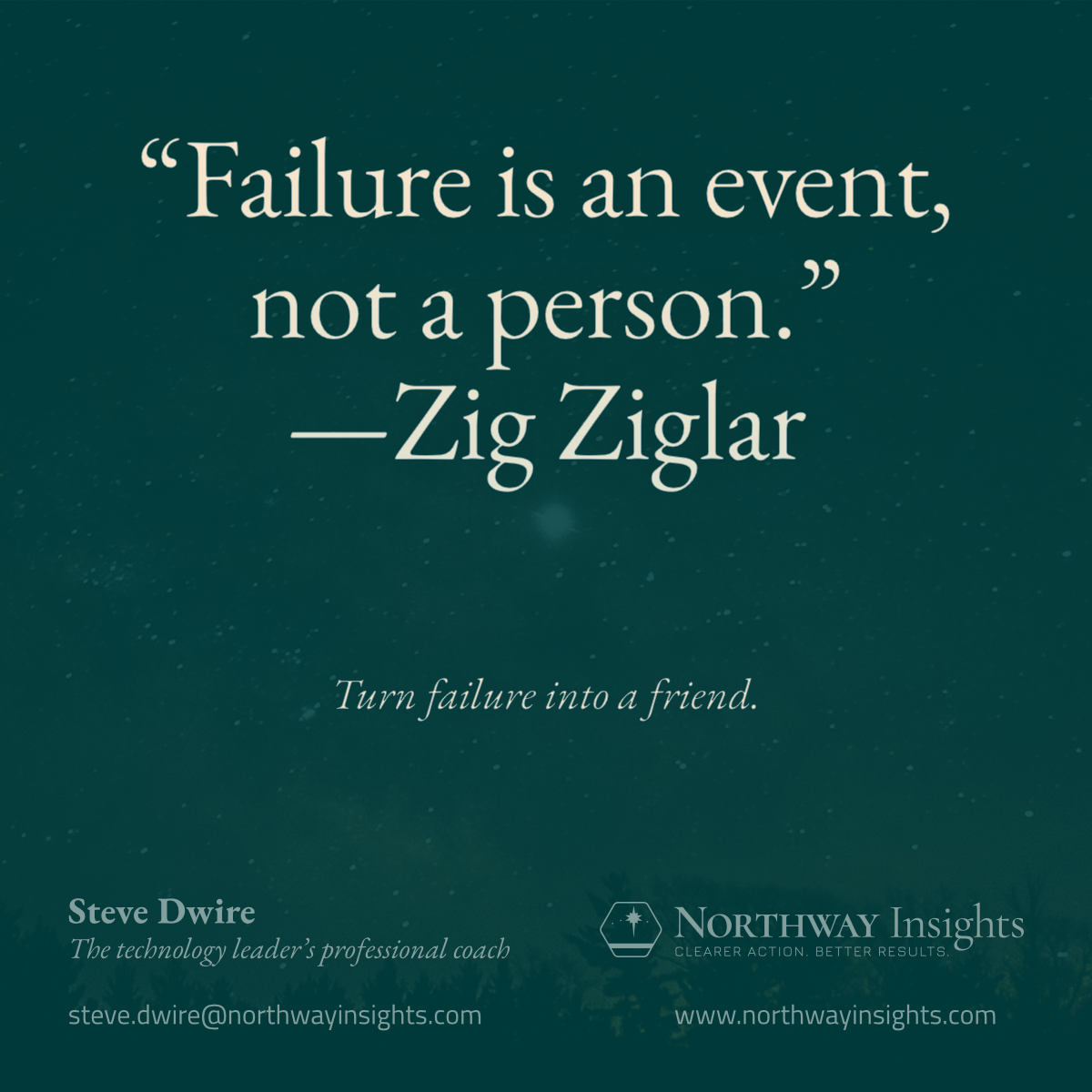I was responsible for a product whose failure halted the delivery of electronic lab results to over 12,000 physician offices across the United States for almost three days.
I was responsible for a failed startup software company, forcing clients to find new vendors to serve them.
I have made poor ethical choices that caused pain to friends and family.
Whatever kind of failure you may feel responsible for, it’s easy to become consumed by it, but that’s not helpful.
Or maybe you’re hesitant to try something because you know what failure feels like, and you don’t want to feel that again.
Whether it’s the sting of a recent failure or the fear of a future one, your emotional response to failure may be holding you back. Even though you’d never want to plan to fail, you can still use failure to your advantage.
👉 “This might not work” is one of Seth Godin’s famous sayings. By conducting an experiment with the knowledge that it might not bring you the results you want, you get the opportunity to find out the truth, and then make informed decisions. One of my clients was recently resisting starting a project because he didn’t want to learn that his idea didn’t work. The fear of finding out was a mental hurdle he had to get past. When he did finally get the disappointing results of his experiment, he was able to find new creative ideas that he hadn’t been able to see past his earlier attachment to a single idea.
👉 When a project you’re responsible for has a high-profile failure, your positive response to it can become a catalyst for your own career growth. When you take full responsibility for the failure and its consequences, and when you can articulate what you’ve learned and what you would do differently in the future, you become a different person — a stronger person. Depending on the nature of the failure and the visibility of your position, you may not keep your current job, but the battle scars you bring with you can make you an even more desirable candidate for some positions than someone who has never faced that kind of heat.
👉 Even a moral or ethical failure doesn’t have to be fatal, with the right response. And that response is very similar to that of a high-profile project failure, even if it may be even harder. Consequences may be more severe, and taking responsibility for them can be costly. But making restitution and learning from the failure are key to finding good on the other side.
Zig Ziglar used to say, “Failure is an event, not a person.” Regardless of what kind of failure you’ve experienced or are afraid of, make the choice to grow from it. If that feels impossible, let’s talk. Visit https://stevedwire.com/connect for a complimentary conversation to move forward with hope.


Leave a Reply